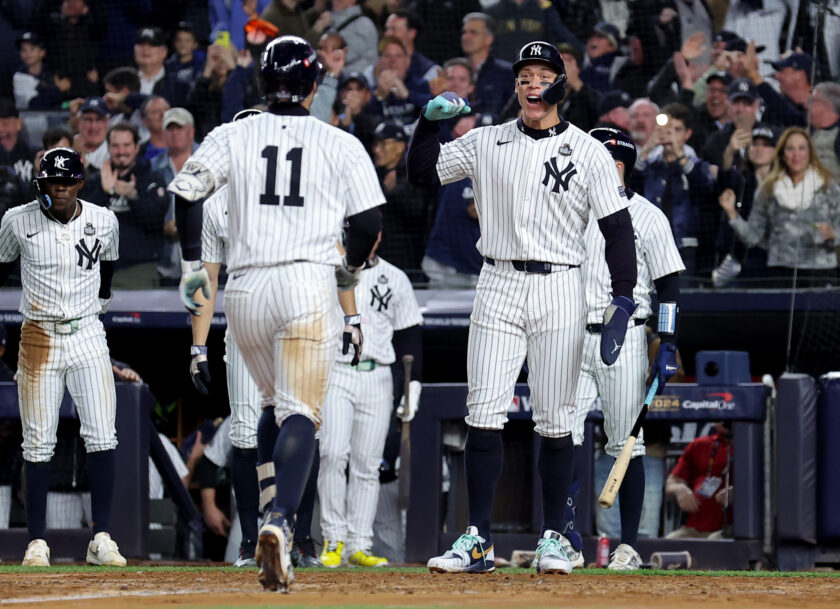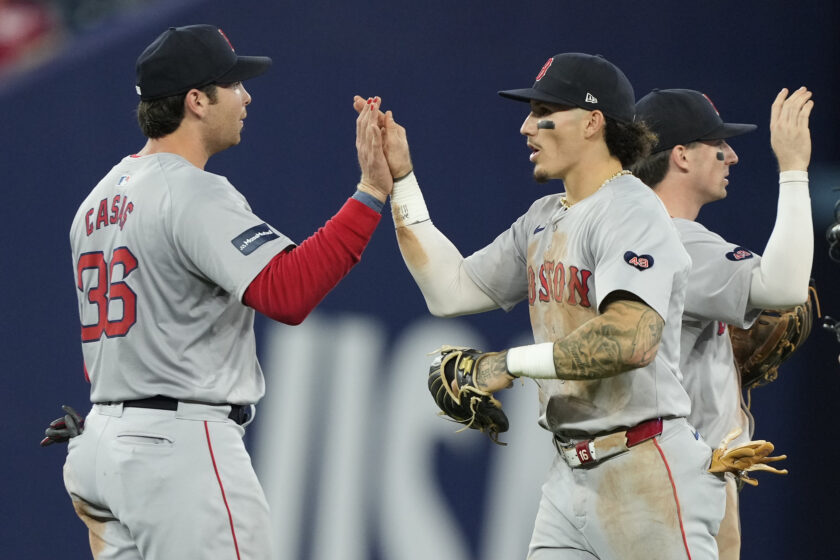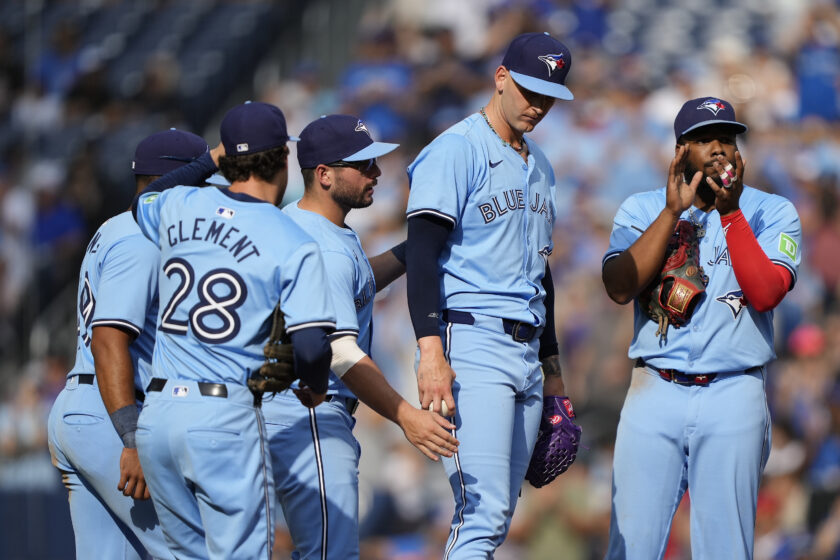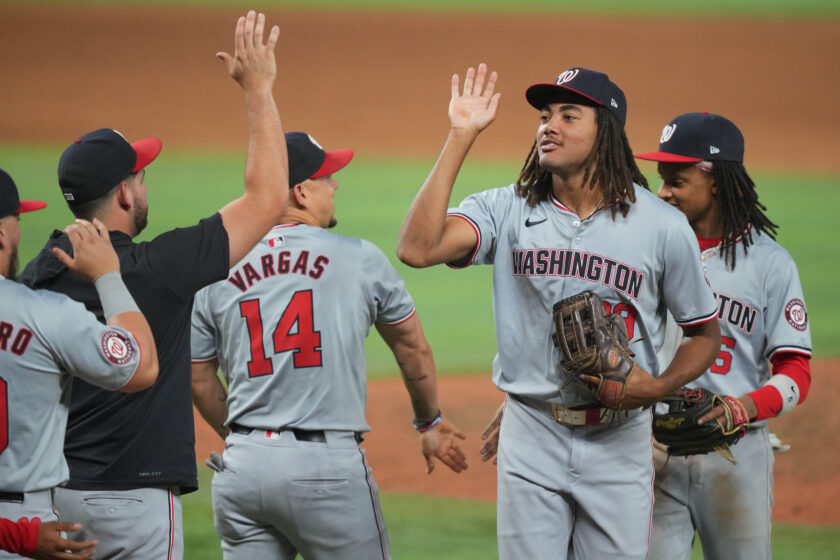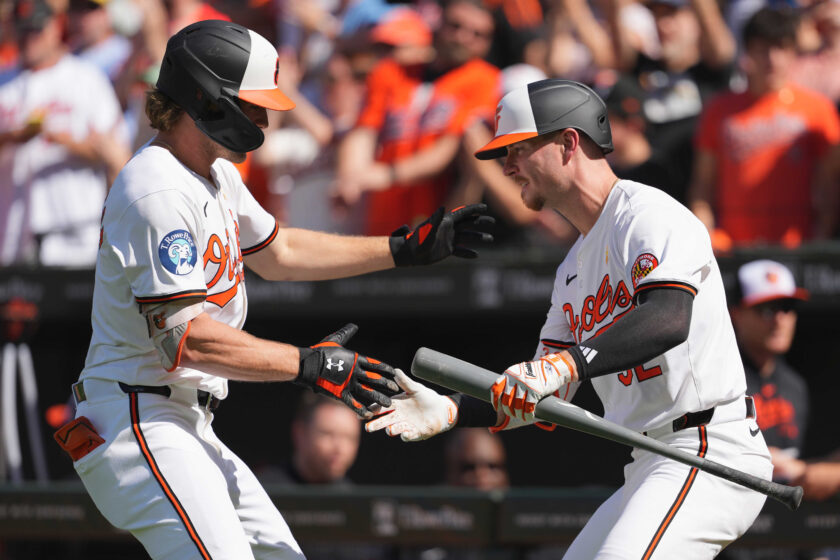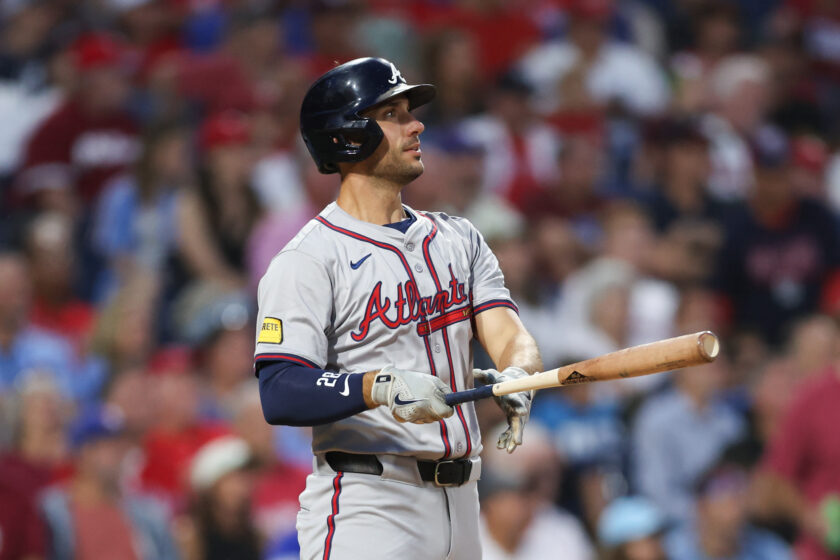ESNY Exclusive: Jazz guard Jared Butler on NBA life with a chronic heart condition
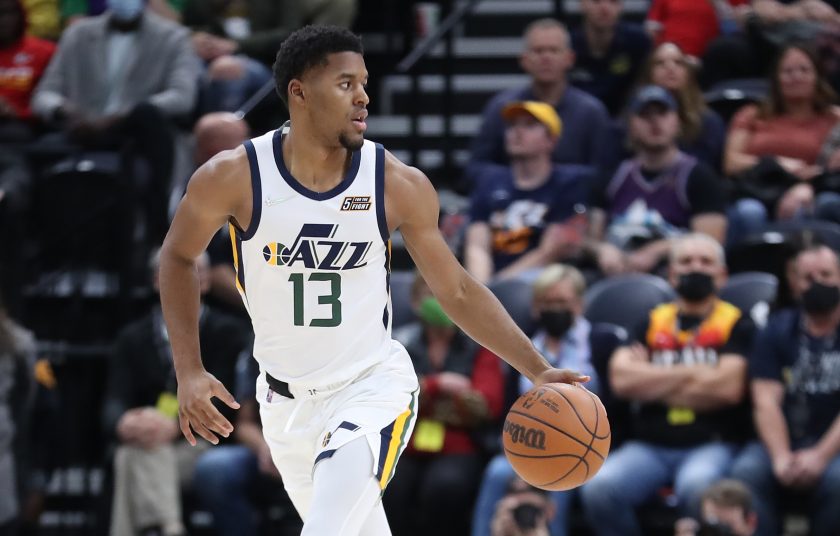
You’d never know it, but Utah Jazz rookie Jared Butler has been playing basketball with a heart condition for years.
[sc name=”josh-benjamin-banner” ][/sc]If there’s one thing Utah Jazz rookie Jared Butler has, it’s heart.
Anyone who watched the 2021 NCAA Tournament knows that. He was instrumental in leading the scrappy and passionate Baylor Bears all the way to the final, where they defeated a tough Gonzaga squad. Butler averaged 15.2 points and five assists per game in the tournament and was named Most Outstanding Player.
But what many fans don’t know about Jared Butler is on top of having a lot of heart, he’s always monitoring it. Four years ago, he was diagnosed with the heart condition hypertrophic cardiomyopathy, or HCM, and is now looking to spread awareness of it. He’s a spokesman for a new website, CouldItBeHCM.com, where people can research the mostly asymptomatic and congenital condition and know the signs.
Jared and his mother, Juanea, recently took the time to sit down with ESNY. They discussed not only how HCM positively affected his basketball journey, but their journey as a family as well. Though not a New York sports story, theirs was too important not to share.
Josh Benjamin: Jared, when were you first diagnosed with HCM?
Jared Butler: So I was 18. Just got to college, playing college basketball. And I was diagnosed from a preliminary physical exam where we did an EKG and other physical-type stuff. My EKG came back abnormal, and through other tests, they found out I had hypertrophic cardiomyopathy. It was the first I’d heard of it.
JB: Juanea, you and your son are obviously very close. To hear this from him, this new mystery heart condition, that must have been a very jarring and emotional experience.
Juanea Butler: Yes, it was. It was very devastating when I first heard about it. And I just couldn’t believe it. I was basically in denial because Jared had played so many sports. Basketball, football, track. All of this, and you’re telling me my child has a heart problem? That was very hard to swallow.
But after learning about it and getting more information about it, I’ve learned so much. I knew there was hope, though.

JB: What have you learned?
Juanea: I didn’t know it was genetic. That was really surprising to me because I was the one who carried the gene. That was really a shock to me because I had never had any symptoms, any manifestation. I had gone to doctors. No one had ever told me that I had HCM, so this was really tricky for me.
And for me to have the gene and not even know that I had any association with it until Jared’s came about, that really just was surprising to me. Absolutely.
JB: Jared, this must have been very surprising for you too. Like your mom just said, you grew up playing every sport under the sun. Basketball, football, running track. You were very active already, so what was it like learning you had this heart condition?
Jared: There’s times in people’s lives, just moments where you’re like “Dang, that just wrecked my life.” Or, “That just changed my course of direction.” This was one of those moments, ‘cause I just wasn’t sure. What does this mean for my future? What does this mean for my health in general?
And being a basketball player, I was worried about basketball and continuing to play. That was a big concern of mine. Just what is my life going to look like afterwards? And it just took a lot of faith and trust and learning about the condition to really move forward.
JB: And now, you’re in the NBA. You’ve come so far. How does it feel?

Jared: It feels great because you dream about certain things. You dream about where you want to be in life, and this is exactly what I’ve dreamt. This has been a great point in my life and I’m just trying to keep moving forward.
JB: Your coach at Baylor, the great Scott Drew. He runs a very fast-paced two-way offense. I interviewed his brother, Bryce, a few years ago. He said the two of them had something in common in that they treated their players like their own sons. How supportive was Coach Drew throughout your journey, and to cap it all with winning a championship?
Jared: It definitely mended the relationship so well. Like you said, he understood everything that was going on. He knew everything I was going through. I thought my playing career was going to be over after I was diagnosed. And the amount of effort he took to understand my condition and trying to learn everything he can to make sure that it was safe for me to play? It was just a tremendous effort by him, and he’s just a great guy in general, a guy you want to be around. That helped me out a lot. Those type of things culminated to winning a national championship as well.
JB: Have your teammates been just as supportive, if not more?
Jared: Oh for sure. It’s kind of weird explaining to them what HCM is. It’s hard enough to say, but they’ve been super supportive and they check up on me. Not they need to, but they’re super supportive and they know everything that’s going on.
JB: Now that you’re living with this diagnosis every day, it doesn’t manifest with symptoms. Do you manage it by just going about your every day life, or is there a regimen you need to follow?
Jared: I think the biggest thing to understand is HCM presents itself in so many different flavors. So my HCM could be totally different from my mom’s or somebody else’s. The treatment plans for each patient can vary. So for me, my treatment plan is basically just monitoring. Heavy monitoring with my doctor and constant checkups with imaging and testing. So that’s just been my treatment plan.
And like I said, I’m fortunate enough that I’m able to continue to play.
JB: What’s the best way to spread awareness about HCM?
Jared: I think talking about it and being vulnerable. It’s been four years since my diagnosis and it kind of took me a little while to open up about it just because it was so private. And now, I feel super comfortable sharing it. Just talking about it and being vulnerable is going to help a lot of people for sure.
Juanea: And also, even if you know someone in your family who has HCM, that’s a good way to find out more information. Or talk to your healthcare provider, or get tested. Because you’ll never know if you get tested. You can educate yourself on CouldItBeHCM.com, where there’s a whole array of information to address your situation. You can go there and get resources to help you.
JB: Juanea, as a parent, what has it been like to see your son overcome this diagnosis? He was easily the fastest player in the NCAA Tournament last year, and now he’s living his dream. As a parent, what does that do to you?
Juanea: You said it. He’s living his dream. That’s all I ever wanted for him, was for him to live his dream. Because he put in so much hard work and dedication, and he was very driven with his craft. Playing ball ever since he was five years old. So that’s all I ever wanted for him, and to see him out there? I’m grateful. I’m so grateful.
Sometimes, I look at it and it still seems so surreal. But we’re so grateful for it.
https://www.youtube.com/watch?v=zBYXO04x4X4&ab_channel=Z.Highlights
JB: Let’s backtrack to Jared’s diagnosis. What would the two of you say to your past selves in that very moment?
Jared: For me, I remember the day I was diagnosed. It was raining. I was sick. I thought the world was coming to an end. But I think the biggest thing is I would tell myself that life just sometimes knocks you down. It’s cliche, but life knocks you down only for you to get back up. This is what HCM’s taught me to be tenacious about. Just know that there’s always a way. That’s what I would tell myself.
Juanea: After learning about his diagnosis, I just think that, like I said, every case is different. Every heart is different. And I was just thankful that he was able to play, that that was his oxygen. THat’s what he wanted. And so for him to have that opportunity, my nights were much better.
There were times when I would literally not sleep, just thinking about what would happen with all the hard work he had put in. But we are very proud of him.
JB: Jared, in the years since, have you connected with other athletes who also have HCM?
Jared: Yes, for sure. It’s so easy to with social media these days. It’s almost sort of been like a family. A lot of the experiences have been the same, so it’s definitely been a point for me to reach out. Doing this, I know I’m going to get more people to connect with and share their stories. It’s been great.
Josh Benjamin has been a staff writer at ESNY since 2018. He has had opinions about everything, especially the Yankees and Knicks. He co-hosts the “Bleacher Creatures” podcast and is always looking for new pieces of sports history to uncover, usually with a Yankee Tavern chicken parm sub in hand.

